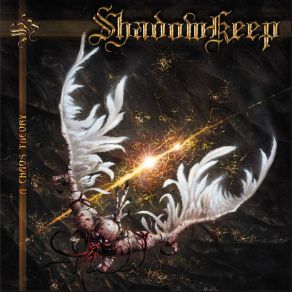A Chaos Theory
Download links and information about A Chaos Theory by ShadowKeep. This album was released in 2002 and it belongs to Rock, Metal genres. It contains 12 tracks with total duration of 49:11 minutes.

|
|
|---|---|
| Artist: | ShadowKeep |
| Release date: | 2002 |
| Genre: | Rock, Metal |
| Tracks: | 12 |
| Duration: | 49:11 |
| Buy it NOW at: | |
| Buy on iTunes $9.99 | |
Tracks
[Edit]| No. | Title | Length |
|---|---|---|
| 1. | A Distant Paradox | 6:26 |
| 2. | Seventeen | 4:57 |
| 3. | Beware the Signs | 5:52 |
| 4. | Thorns and a Rose | 3:56 |
| 5. | Believe | 5:34 |
| 6. | Atalanta Fugiens (Instrumental) | 1:40 |
| 7. | A War of Principles | 3:59 |
| 8. | Fear and Loathing | 4:28 |
| 9. | The Kether's Syndrome | 1:22 |
| 10. | A Crack In the Mirror (Instrumental) | 0:52 |
| 11. | Chaosgenesis | 4:43 |
| 12. | Lucifer's Pastime | 5:22 |
Details
[Edit]Commercially, pop-metal hair bands and Gothic fantasy metallers suffered the same fate around 1992-93, when Nirvana and Pearl Jam hit the jackpot and alternative rock became mainstream. All of a sudden, it was no longer fashionable for new headbanger combos to play either hair metal à la Poison, Bon Jovi, and Winger, or Gothic-themed fantasy metal à la Iron Maiden and Ronnie James Dio. Some '80s survivors have continued to make a fortune touring — Guns N' Roses can still sell out a huge soccer stadium — but most of the metal bands that have come along since the grunge era have embraced what is loosely defined as alternative metal. So the members of Shadowkeep were definitely going against the grain when, in 1999, they formed an '80s-like fantasy metal band and totally ignored alternative metal trends. A Chaos Theory, the British outfit's second album, came out in 2002 but sounds like it could have been recorded in 1985 — this release is an unapologetic throwback to a time when bands like Queensrÿche, Iron Maiden, Judas Priest, and Savatage reigned supreme. This retro CD is totally oblivious to 21st century alternative metal, and Shadowkeep shows no awareness of Korn, Sevendust, Limp Bizkit, or Soundgarden. Instead, the U.K. headbangers are consistently mindful of pre-'90s metal, which is probably just as well because they're undeniably good at what they do. "Fear and Loathing," "Beware the Signs," and other forceful yet melodic tracks aren't the least bit groundbreaking, but that doesn't make the album any less focused or inspired — Shadowkeep brings a lot of passion and conviction to these songs. Anyone who continues to play Queensrÿche's Operation: Mindcrime religiously and still cannot get enough of Priest, Maiden, and Savatage needs to be aware of this decent, if derivative, effort.